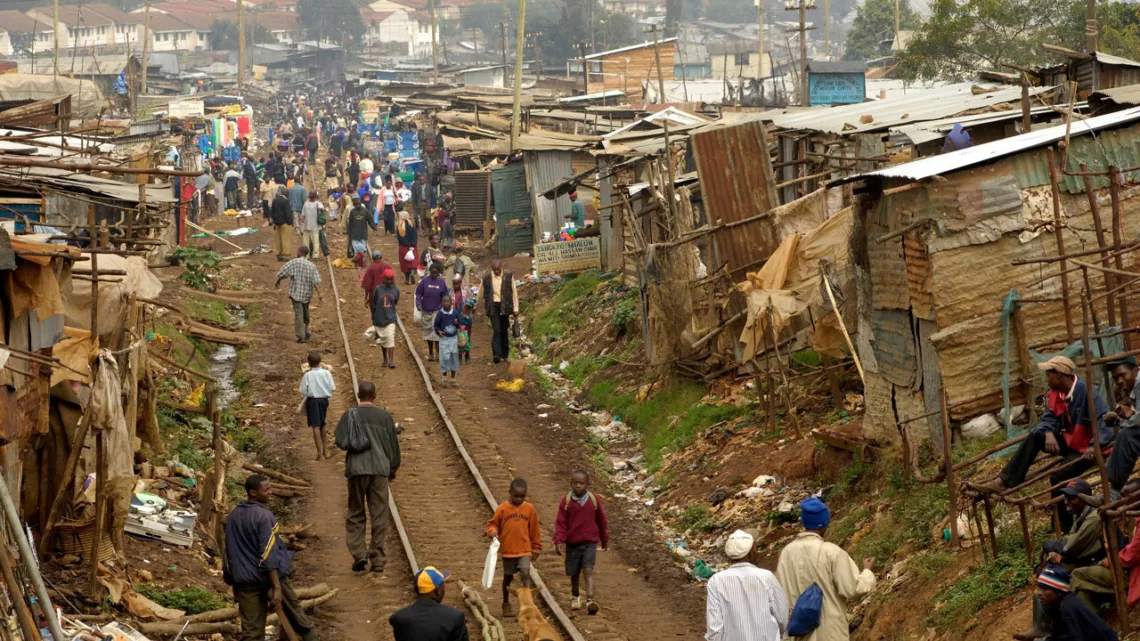Nobody wants to live in crushing poverty. When a child is born in a poverty-stricken home, the parents do welcome the newborn, but their faces also wrinkle up as they start to worry about the numerous difficulties the child is likely to face in life.
A person living with absolute poverty does not have enough means to feed himself or his family. He lives hand to mouth as he has no money in his pocket; he has sleepless nights and restless days, and his mind remains under great strain all night and day. The situation sometimes compels him to sell his blood or bodily organs to make ends meet. Many poor families live in ramshackle slums, where they see no future for their children. Absolute poverty, in other words, is a shame and stigma not limited to one generation; it extends to many generations.
These are the conditions faced by thousands of families in Nigeria — a homeland which was achieved by our forefathers through untiring efforts and sacrifices. They aspired to convert it into a social welfare state, but we have failed to achieve that noble goal. In the year 2000, our leaders signed on to the historic Millennium Development Goals (which were later complemented by the Sustainable Development Goals), committing themselves to eradicating poverty and hunger. Unfortunately, we are at the same stage as before, or perhaps we have regressed further. Economic instability, maladministration, corruption and political bickering have blighted the hopes and dreams of the present generation.
Today’s Nigeria is economically weak and warnings are being issued that it is on the verge of serious crisis. We have taken loan packages from various international development agencies and countries, but our condition continues to worsen. A significant number of people in Nigeria live below the poverty line, in extremely difficult circumstances. Unfortunately, the number is increasing day by day at an alarming rate. The recent global economic recession and aftermath of the covid-19 pandemic has added extra anxiety to our already deep-rooted troubles. This is obviously not something that the founding fathers had envisioned.
It is the dream of every Nigerian to get rid of poverty, but the question that torments us is: how can this goal be achieved? The answer lies in the Quranic verdict which says, “and that man can have nothing but what he strives for” (53:39). Struggle is the meaning of life; it leads to success and prosperity for the one who strives and struggles for a just cause. Allah does not disappoint anyone and He has promised blessings for those who strive to do good. It can be a struggle to break free from the poverty trap once and for all. It can also be a struggle to search for livelihood and raise one’s quality of life.
We are a resource-rich country but we are unable to break the poverty trap. What we need is an honest struggle to build a future edifice — even if it takes one or two generations — that will help lift the poor out of poverty and bring dignity to their lives and give hope to future generations. Our resources are spread all over the country but they need a well-planned strategy that can lead to their judicious use. There are a number of countries that have limited resources, but they have made sustained efforts to provide their people with a better quality of life. Their examples are worth emulating.
We have yet to find a focus in our struggle. For example, we have yet to understand the subject of economics. Economics is the driving factor for any nation to survive in today’s competitive world. Without a strong economy, the nation has to remain crippled in the comity of nations. Here, economics means peoples’ struggle to generate enough income to fulfil their needs. The government is responsible for providing a safe and secure environment to people to pursue their day-to-day economic activities.
In order to overcome the problem of poverty, the government usually provides cash handouts under Conditional Cash Transfers or Social Investment Programs to the poorest of the poor. Arguably, this will not tackle the problem of poverty; rather, it will create lethargy and open the door of corruption. Therefore, instead of providing cash or free items, the government should subsidise essential items for a limited period and ensure that the subsidy reaches the poor end user.
The economic struggle is to begin with education. Here, education does not mean getting degrees but learning practical skills for earning a livelihood. People should be given incentives to learn skills to earn their livelihood. Our education system needs an overhaul in order to address issues like poverty. Ultimately, to banish poverty, there is a need to radically reform the education sector and start from ground zero.





